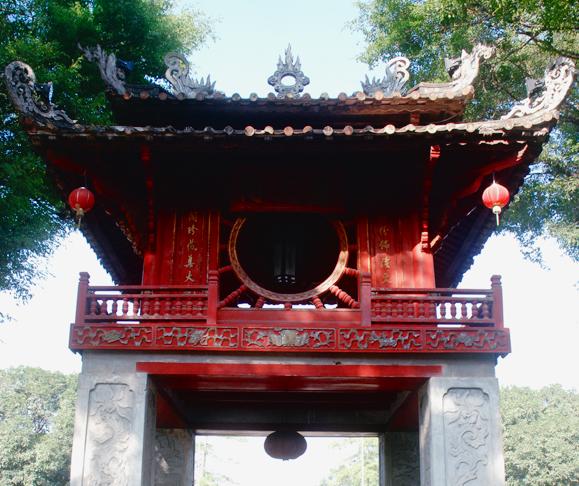NA passes Capital Law
VGP – Gaining 75.7% of votes, the Capital Law was passed on November 21 in Ha Noi and will come into effect on July 1, 2013.
|
|
|
Khue Van Cac is the symbol of Ha Noi – Illustration photo |
The Capital Law consists of four chapters and 27 articles clearly stipulating the Capital’s position and role as well as policies and responsibilities for the building, development, management and protection of the city.
The Law also covers some articles on Capital Region, planning and building of Capital, preservation and development of culture, land management, scientific and technological development as well as transport.
With 77.31% of votes, Khue Van Cac (Pavilion of the Constellation) in the Temple of Literature (Quoc Tu Giam) was selected as the symbol of Ha Noi.
Under the new Law, the capital is capable of mobilizing domestic investment through local bond issuance and voluntary contribution and spending central budget above schedule.
The Ha Noi People’s Council will issue preferential policies on investment and mobilize resources to build urban area, housing, technical and infrastructure system in synchronous, modern and convenient manner in suburbs and work with the inner city in favor of socio-economic development, job generation and prevention of spontaneous emigration in the inner city.
By Khanh Phuong


